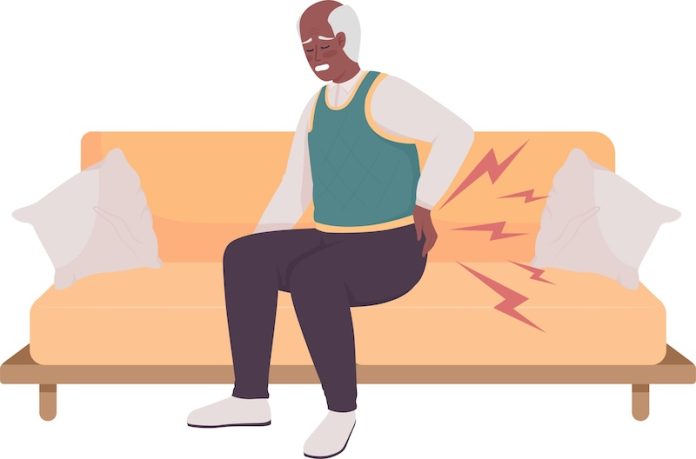
Almost everyone has experienced that sudden sharp pain in their back after bending over to pick something up. For many, what starts as a minor annoyance can escalate into a chronic problem, leading to missed workdays and considerable discomfort.
Often, this pain is due to a condition known as degenerative disk disease, where the disks that cushion the vertebrae in the spine begin to break down.
As these disks wear out, they can cause pain and restrict movement, similar to how worn-out shock absorbers make every bump in the road painful.
However, a promising new treatment approach is emerging that doesn’t require surgery or traditional painkillers. Dr. Douglas Beall from Clinical Radiology of Oklahoma and his team have developed what they call “viable disk allograft supplementation.”
This treatment involves injecting a special fluid filled with cells into the affected disks to help regenerate and repair the damaged areas.
The procedure is relatively simple but has shown significant effectiveness. The injected cells aim to rejuvenate the worn-out disk tissue, potentially restoring it to a healthier state.
Dr. Beall describes the relief it provides as akin to suddenly being able to dance freely at a party after previously suffering from a painful foot—a significant improvement for those affected.
The treatment has garnered impressive support from early studies. In a trial with fifty volunteers who suffered from chronic back pain, the results were promising.
About 60% of the participants reported a reduction in pain by more than 50%, and 70% noticed improved functionality in their backs. Such improvements could mean the difference between needing help to walk and being able to dance joyfully.
One of the most significant potential benefits of this new treatment is its ability to reduce or even eliminate the need for opioid painkillers. These medications are commonly prescribed for chronic pain but come with risks of addiction and other serious side effects.
A treatment option that lessens reliance on such medications could be particularly beneficial for younger patients who might otherwise face many years of managing their condition.
The procedure for the cell-based injection is straightforward and minimally invasive. Patients can usually go home the same day, making it as simple as getting a flu shot.
This ease of treatment, combined with the potential to significantly alleviate pain and enhance mobility, makes it an attractive option for those suffering from back pain due to degenerative disk disease.
Dr. Beall is optimistic about the potential of this new treatment to change lives. While more research is necessary to fully understand and perfect the method, the initial findings are promising and offer hope for a future where chronic back pain doesn’t have to be a debilitating part of life.
This innovative approach could help many people regain the ability to live fully and actively, free from the constraints of back pain.
If you care about pain, please read studies about how to manage your back pain, and Krill oil could improve muscle health in older people.
For more information about pain, please see recent studies about how to live pain-free with arthritis, and results showing common native American plant may help reduce diarrhea and pain.
Copyright © 2024 Knowridge Science Report. All rights reserved.



